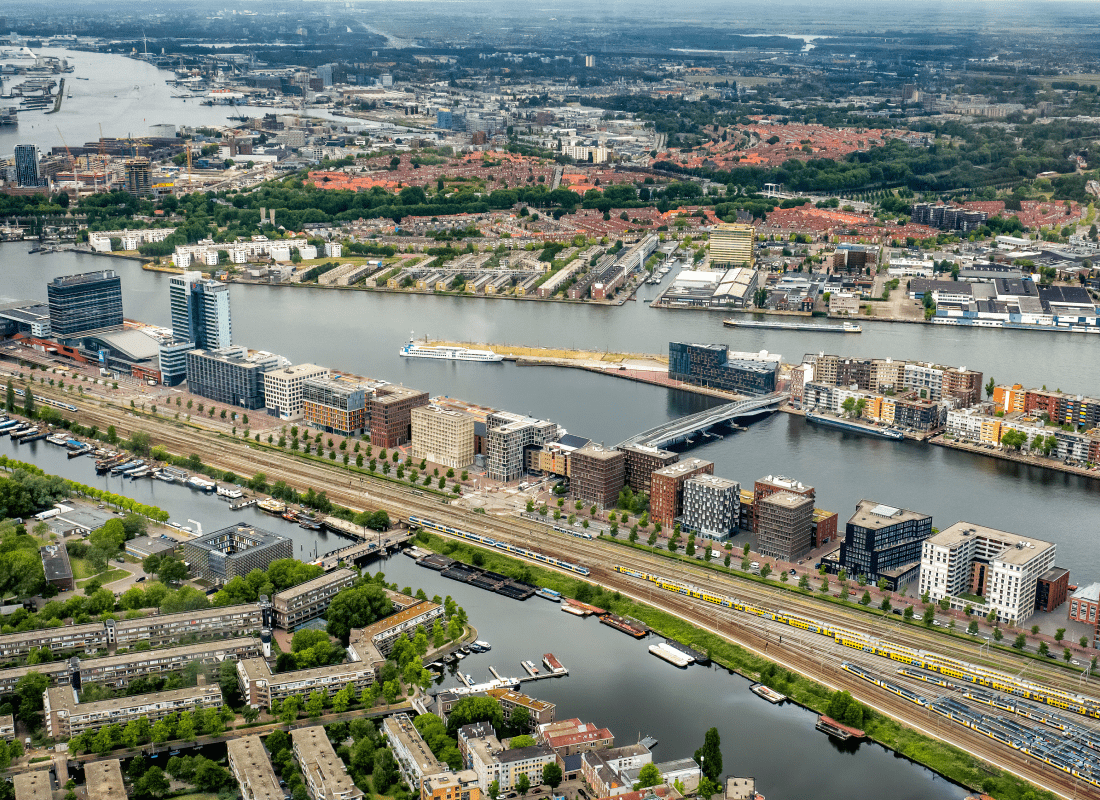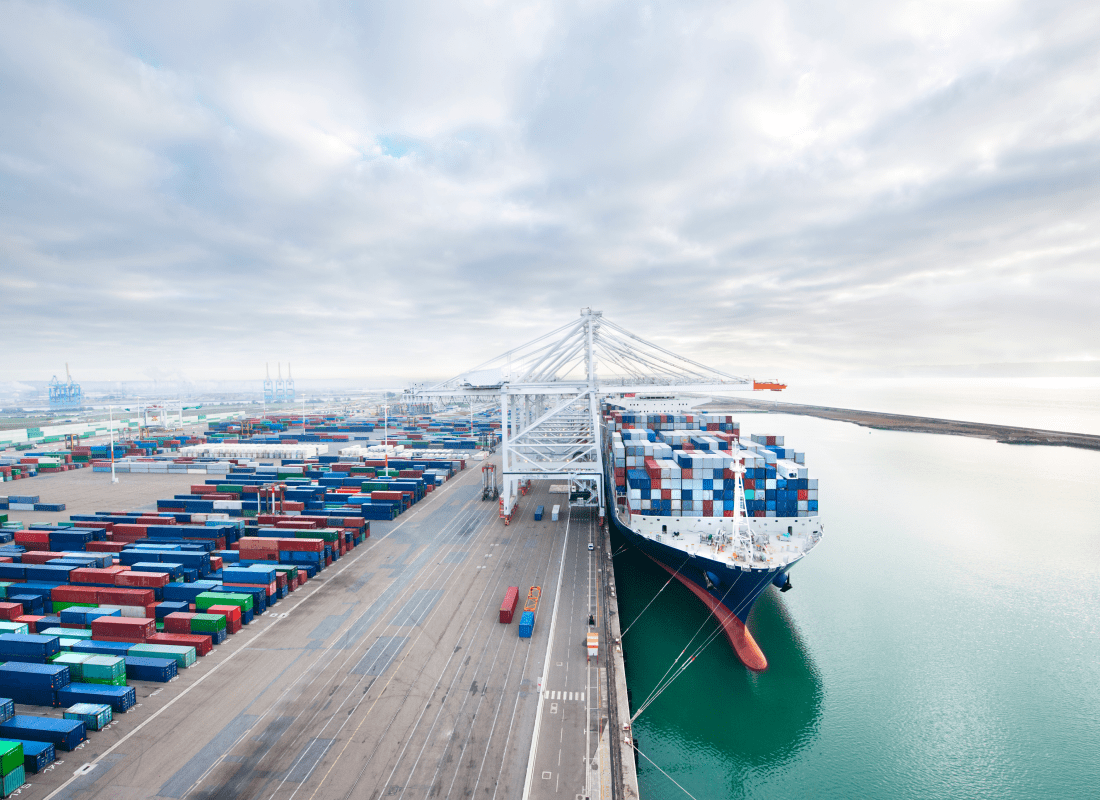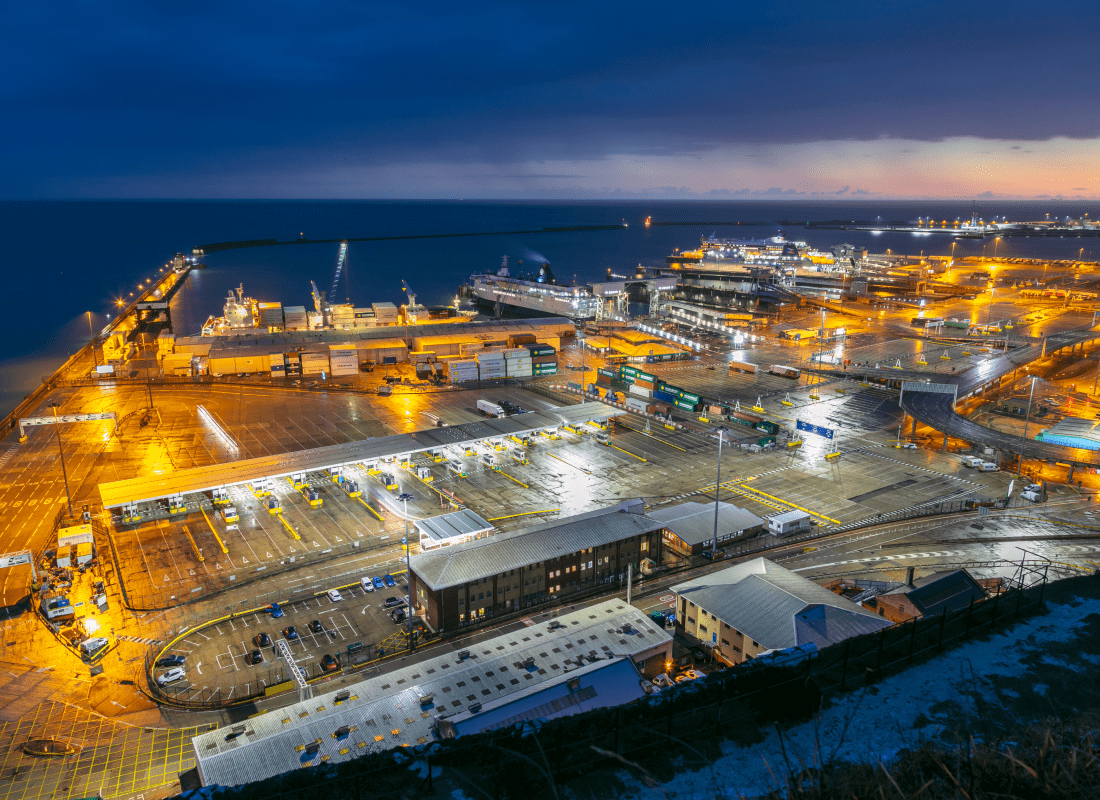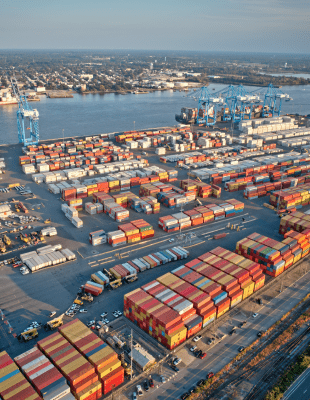Ports are a crucial aspect of a modern trading system and are major engines of the economy. As the entry and exit point for the majority of goods, when a port’s operations are disrupted for any reason, the economic impacts can be severe regionally and even globally. The Russian invasion of Ukraine has had many consequences for transportation, but specifically the closing of its ports, preventing exports of grain, has had huge implications for the food supply across North Africa and the Middle East and the basic price of bread.
Although estimates vary, the United Nations Conference on Trade and Development states that over 80% of the world’s trade by volume goes by sea (more than 10 billion tonnes of cargo). During Covid, when many port staff were unable to work, in addition to a shortage of shipping containers, the build-up of ships at ports waiting to unload or load meant huge disruption to supply chains around the world. Recent problems with the supply chain caused by a shortage of chassis at US ports has also led to delays and congestion. This congestion has more far-reaching consequences than those just seen at the ports, for operators, owners, logistics companies as well as the end-customer.
The impacts of the pandemic are still being felt well into 2022, with recent lockdowns in China continuing to cause problems, particularly to the Chinese manufacturing industry that relies on exports through ports like Shanghai.

Planning for future shocks
From a business continuity perspective, the need to plan for future shocks is essential to provide certainty for port operators so they can keep congestion to a minimum and so they can continue to operate, particularly in container terminals, by guarding against future threats that include natural disasters as well as the long-term effects of climate change.
Sea level rises are likely to be a major problem this century. Every port has water access, and many could be overwhelmed by the sea, causing them to either close or put in place expensive prevention measures such as sea walls.
Climate change could also create other problems such as increased severe weather events such as hurricanes, storm surges and extreme waves, something that can badly affect ports due to their exposed position on the coast. Rising temperatures may increase operating costs for things like shipping refrigeration, which could have a knock-on effect on port charges.
There are opportunities in a changing climate as well as threats, however, since rising seas may improve port accessibility due to the draft depth of the water increasing, and may also open up new routes such as those across the Arctic Circle.
But the need for risk assessments is vital, both in the short and long term, and at Arcadis we are working with port authorities and terminal operators to investigate all the potential risks and options to mitigate risks and maximize business continuity at all times.
The war in Ukraine is a clear demonstration of the need to plan and guard against disruption. The imposed sanctions have had huge implications for some places like Rotterdam, a major transhipment port. Whereas under normal operations, ships would dock briefly and unload/load a portion of their cargo, after sanctions, ships with Russian-bound cargo had to completely unload with huge storage complications for the port.
Cybersecurity is also something about which ports have to be extremely vigilant. Terminals are vital components of national economies and can be a target for attack or sabotage. Of course, passenger safety at ports is crucial in regard to terrorism, but the overwhelming number of cargo ships compared to passenger ships means that cargo terminals are most at risk, while guarding against smuggling through terminals also remains a necessity, with hackers attempting to disguise shipments through the use of malware.

Decarbonising shipping
Long term planning must also include the infrastructure changes needed to decarbonise maritime shipping. Contributing around 3% of global greenhouse gas emissions, more than the airline industry, removing the emissions of shipping is vital for the world to achieve net zero.
Many of the major shipping companies are looking at alternatives to diesel fuel, with Maersk recently investing in developing biofuel production for its ships, meaning ports will need refuelling infrastructure to aid the switch. The recent signing of the Joint Statement on Green Hydrogen by leading organisations from across the maritime sector demonstrates further commitment to change, as well as attempts to develop a framework for doing so.
As part of this, in 2018 the International Maritime Organisation developed an initial strategy for reducing global greenhouse gases in the sector and new mandatory measures coming into force in 2023 will ensure ships are measuring and sharing their energy efficiency.
Arcadis is also working with port authorities and shipping companies to advise on electrification, of both port equipment and shipping fleets. We are working with companies across the world on the use of shore power to avoid vessels running their auxiliary engines when docked which saves fuel and reduces emissions for the port as well as how best to install charging infrastructure for electric fleets at and around terminals. Not all terminals or ports have the necessary power requirements or infrastructure. Will the ship operators make the necessary business transformation whilst access and infrastructure is still limited?
Every terminal we help to deliver, every marine facility we design, and every dredging analysis we do, creates an opportunity for us to offer sustainable solutions to help the sector get to net zero. Port authorities, leading private organizations and operators need to take a leading role in decarbonisation, something that is happening globally although at varying paces and at Arcadis we are well placed to help them reach their goals.

Arcadis is your preferred partner
We deliver sustainable design, engineering, and consultancy services for natural and built assets.







